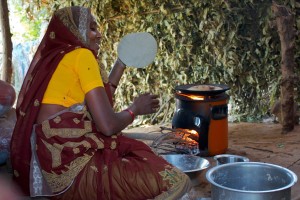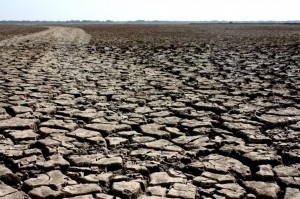Global Consulting Trip – Hariyali Highlights
Hariyali – Green Energy Initiative
The Hariyali Project is aimed at distributing 200,000 solar lanterns and energy efficient cookstoves in the Indian state of Gujarat. Once the lanterns and stoves are distributed, we are providing recommendations on how to measure their social impact on improving livelihoods. We are also providing some recommendations for how to go about selling carbon credits for the reduced CO2 emissions that the lanterns and stoves provide. This money will be returned to the users who integrate these products into their daily lives and could eventually cover the entire cost of the new equipment.
December 12, 2011
This morning we awoke to the news that, in spite of the rifts among participants, an agreement was reached at the UN Climate Summit in Durban to extend the Kyoto Protocol. This is significant for us as a portion of our project revolves around the employment of carbon trading schemes to provide benefits to those who chose to purchase the solar lanterns and efficient stoves that are the centerpiece of Hariyali.

The clean cook stove pictured here can transform the lives of rural families by providing a cleaner cooking experience, allowing the women to use the time they would normally spend gathering wood and cooking working to make money, and provide money back to the families through carbon credits.
Today we spent our first day at SEWA HQ. Arriving shortly after 11AM we made introductions and were treated to a presentation on SEWA’s ongoing efforts in India and internationally. We were treated to lunch and Chai before moving downstairs to formally meet our contacts in the Hariyali group for the first time in person. We then sat down to ask questions to the group head, Anurag. And we had plenty. A man with an impressive resume, he spent time as an expat in the Middle East and Europe working in asset management before returning to India. He made his expectations of us clear as we continued to discuss the project until 6PM at which time we retired to the hotel. One thing is clear, for the next week we have our work cut out for us.
December 20, 2011 – Desolation in the Desert
If you think cooking dinner too difficult so you order takeout, consider yourself lucky. If you find yourself complaining about the size of your house or apartment, bite your tongue. When you feel yourself complaining about the monotony or challenges of your job, stop. If you think your life is tough, chances are, it is not. Today our eyes were opened…
Desolation is the word that best describes today’s excursion. We set out early in the morning on our way to the salt flats near the southern edge of the Little Kutch desert. Roughly three hours into the drive we found ourselves on an increasingly rough road leading into the desert. Soon the vegetation cleared and there was nothing but brown dirt as far as the eye could see. Making our way across the dirt we arrived at a small makeshift straw hut near a series of rectangular pools; here was a salt farm. We found it hard to believe that we’d actually find humans inhabiting this place. While they maintain their permanent residences in a nearby village, they spend up to 8 months each year living in the searing heat of the salt flats.
We toured the farm and learned about the difficult lives these people lead. The monsoon season strikes during the summer months, submerging the flats in up to eight feet of water before receding in the fall. The months of October through May are the salt harvesting months. Even though it’s no longer summer, the heat out on the flats is tangible. In order to produce their product the farmers must first dig wells over thirty feet deep, taking 3-4 days for each well. Many times, they’ll dig and will come up dry, wasting those days and starting over in another spot. When they find water, the salinity is four to six times greater than that of seawater. The water is then pumped and channeled into a series of evaporative pools where it is tended to on a daily basis until crystalized. Assuming the quality is sufficient it is then harvested.
Returning to the focus of our project we took a look within the family’s small hut. As was expected, the cooking apparatus resembled the three-stone stove we’ve seen so many other places. The family stated that they burn roughly 80 kg’s of wood each week, which is consistent with data we’ve gathered elsewhere. Here however, the wife must travel 1.5-2.0 km on foot, twice a week, in order to reach a source of firewood. This source is steadily becoming less reliable. She must then make the trip home carrying 40 kg’s of wood ON her head. One thing is clear; these people live very difficult lives and their efforts go under-rewarded. If something so simple as a solar light or an efficient cook stove can make a real impact on their ability to live a better life, we can only hope that our efforts with SEWA can help facilitate this.

